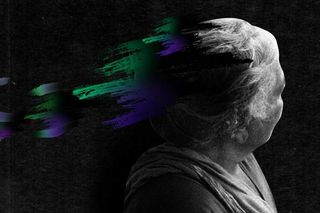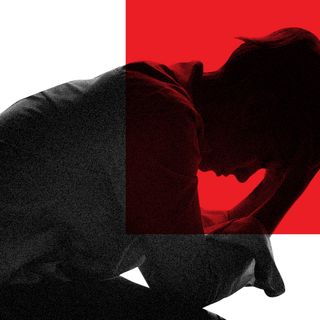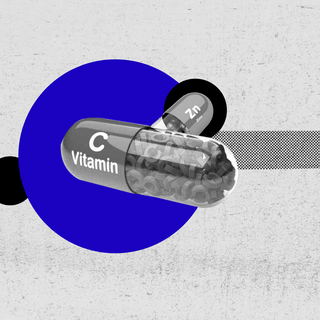
In India, Dementia Care Is Draining Families’ Resources, Stamina
Low awareness, the stigma of ‘being mad,’ inadequate medical care, and no social safety net are combining to set up an impending dementia crisis.

KS Ahluwalia, 70, often tells his wife that the lady living downstairs is very sweet — she refers to him as “Papa.” That lady is his daughter-in-law.
Ahluwalia was diagnosed in April 2018 with Alzheimer’s disease, a progressive neurological disorder that causes memory loss and cognitive decline. Since then, life has been an uphill battle for him as well as for his wife and primary caregiver, Punam.
Alzheimer’s disease is the most common type of dementia. According to the Alzheimer’s and Related Disorders Society of India’s (ARDSI) “Dementia India Strategy Report (2018),” 4.4 million people in India, mostly the elderly, were living with dementia as of 2015, and the number is expected to increase steeply as life expectancy improves. Dementia is a general term used to describe a group of symptoms that affect memory, thinking, and social abilities, thereby interfering with daily functioning.
The report also states that only 10% of dementia cases in India are actually diagnosed. With very low levels of awareness, the rest never get the medical help and social support they need to live a life as comfortable as possible. Even for the few lucky ones, challenges abound.
A chronic disease with no cure and an average life expectancy of around eight to 10 years after diagnosis, dementia places an enormous financial burden on families. Ahluwalia’s medicines, which temporarily improve the symptoms but cannot act as a cure, cost about Rs. 8,000 per month. Some of his prescribed medicines run at very short supply in the market, Punam said, and often have to be bought at inflated prices. In addition, at this stage, her husband requires one adult diaper, priced at about Rs. 100, per day.
“We do not have any source of income. My husband retired from a private job and our savings went into our childrens’ weddings. Of course, our son helps us, and we have a little money in the bank. But our expenses are huge,” Punam said.
Although Punam is able to take care of all of KS’s daily needs now, if they require a trained attendant (or two, to cover the day and the night) in the future, that will be an additional Rs. 15,000 per month per caregiver. Private institutional care, on the other hand, can cost anywhere between Rs. 50,000 and 1.5 lakh per month, according to Jasmine Sinha, head of operations at Hope Ek A.S.H.A, an NGO that works with dementia patients and their caregivers.
Related on The Swaddle:
Why Alzheimer’s Is a Woman’s Disease
Fortunately for the Ahluwalias, consultations with their doctor are free of cost. After initially seeing a few medical practitioners in private hospitals, they were advised by Bina Berry, board member of ARDSI, to approach the public health care system instead. But access to and availability of government health services are far from adequate for all the dementia patients in the country. Reports consistently find only 10% of dementia patients who need care actually receive it in India.
A 2013 research study published in the Indian Journal of Public Health indicates that the annual household cost of caring for a person with dementia, depending on the severity of the disease, ranged from Rs. 45,600 to 2 lakh in urban areas and from Rs. 20,300 to 66,025 in rural areas. Furthermore, a 2018 research study suggests that 20% of the most economically deprived individuals are 50% more likely to develop dementia.
Organisations like Hope Ek A.S.H.A try to ease the financial burden for poor families with this plight. “We support them by sending them the things they require — diapers, medicines, et cetera — to manage their dementia patients at home,” Sinha said.
Surekha lives with her family under a flyover in Delhi. Her mother-in-law went missing five years ago. “She was ‘mad,’” Surekha says. “Something was wrong with her mind.” The woman had started forgetting things a long time ago, but around the time she went missing, her condition had deteriorated to a stage where she needed constant monitoring. Surekha’s family, who survived on their earnings from begging at traffic lights, was unable to watch her constantly.
Not knowing what her condition was but in desperate need of a solution, the family had taken the woman to a government hospital in Shahdara in east Delhi. She was prescribed medicines that, Surekha said, would promptly make her fall asleep.
This is not an advised treatment for dementia, according to Dr. Manjari Tripathi, a professor neurology at AIIMS, New Delhi, who added medicines for sleep should be avoided for dementia patients unless there is disruptive sleep behaviour. Rather, “patients are given medicines, which increase the memory neurochemical called acetylcholine. Counselling, avoiding triggers, and behavioural strategies are effective ways to treat neurobehavioural symptoms and should be deployed first,” Dr. Tripathi said. “Only in extraordinary circumstances of uncontrollable behaviour should emergency SOS medication be given, but daily use of antipsychotics must be avoided.”
Related on The Swaddle:
What It’s Like to Live With: A Mother With Alzheimer’s
The lack of dementia-related awareness and sensitivity in society, along with the stigma of ‘being mad,’ results in families not seeking the help they need — or, when they do, receiving inadequate care. So, they suffer in silence with an unknown and unrecognised disease.
According to Berry, who has also written a book titled Vismrit about her mother’s battle with Alzheimer’s, the biggest challenge in creating a dementia-friendly society today is lack of awareness.
“Due to this, a lot of families also go into denial. We’ve seen a lot of case histories in which sons and daughters just do not want to accept that their parent has any such disease,” she said. “If you do not accept it, you are not going to do anything about it or take help.” She pointed out that dementia is often misrepresented in pop culture, through Bollywood films like Black (2005) and 102 Not Out (2018), which creates even more confusion in the minds of people.
Greater and more accurate awareness will, eventually, lead to risk-reduction behaviour among the population, said R. Narendhar, executive director at ARDSI. Risk factors associated with Alzheimer’s disease, such as physical inactivity, smoking, and depression, can be targeted holistically to produce effective prevention strategies. “If you take all precautions, the chances of getting dementia can reduce by up to 40%,” said Narendhar.
Apart from spreading awareness, the government needs to prioritise dementia care and create a national policy and programme of the kind that exists for the prevention and control of HIV/AIDS, for example, added Narendhar. “While such programmes exist for the elderly population, and these cover dementia in a limited way, we also need a targeted policy specifically for dementia. Even the minimal fund allotment made by the government currently is very difficult for NGOs to access because procedures are so cumbersome.”
Related on The Swaddle:
Most People, Doctors Think Dementia a Normal Part of Aging; It’s Not
Inspired by the World Health Organisation’s global action plan for dementia, ARDSI submitted to the Union Health Minister Harsh Vardhan in 2019 a proposal with seven action areas for dementia in India. So far, nothing has come of it. Among other things, the proposal recommends the maintenance of a registry of dementia patients so that they can systematically be provided with the required services. The provision of running services, including a sufficient number of affordable daycare and residential care centres, along with a trained workforce, needs to be strengthened. Those in the severe stage of dementia are especially in need of institutional care. This cannot be managed by NGOs alone because finding funding for something that is considered a “perpetual investment without return” is very difficult for them.
“The government cannot club the needs of the general elderly population with the needs of dementia patients,” Berry said. “These are two very different things. There are a lot of government-run old age homes, but maybe a separate section of these can be devoted specifically to specialised dementia care.”
As India’s youthful population begins to age and live longer than their parents, the number of people affected by this condition will rise manifold. It is projected that by 2030, 7.6 million people will be living with dementia; by 2050, that number will nearly double. But unless dementia is made a public health priority, and unless a comprehensive policy to provide the necessary care services is put in place, the burden of long-term caregiving will largely have to be borne by families, most of whom have neither the financial means nor the required expertise to cope.
Sometimes, Punam said, caregiving 24 hours a day leaves her feeling like her brain has been fried. It is frustrating and exhausting. But, at the end of the day, she has a complete sense of “hamdardi” (compassion) and an almost-maternal empathy for her husband.
Not every dementia patient has someone like Punam in their lives. It is, then, for the government to ensure comprehensive care services and for society to create a non-judgmental and friendly environment so that every person afflicted with dementia may live the final stretch of their lives with dignity.
Tarini Mehta is an independent journalist, who has been published in The Hindu, The Diplomat, and StoriesAsia. Based in Delhi, she writes on governance and culture.
Related


All You Need to Know About Extreme PMS
